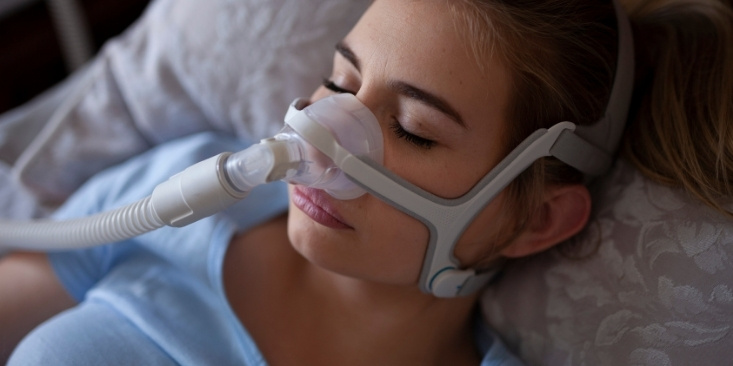Managing Sleep Apnea During Thanksgiving Travel: Tips for a Restful Holiday in Tustin

Traveling during Thanksgiving can be exciting, but it presents challenges for those with sleep apnea. Sleep apnea disrupts breathing during sleep, leading to fatigue and other health issues. During busy holidays like Thanksgiving, travel can worsen these symptoms due to lack of sleep, stress, and changes in routine.
Maintaining a consistent sleep routine while traveling is crucial to staying rested and healthy. This blog offers practical tips for managing sleep apnea while you travel to Tustin, ensuring you can enjoy your holiday without disrupting your treatment.
Understanding Sleep Apnea and Its Impact on Travel
Sleep apnea causes your airway to collapse while you sleep, leading to breathing interruptions. This condition results in poor sleep quality and daytime fatigue. Several factors can worsen symptoms when traveling, particularly during the busy holiday season.
Changes in environment, disrupted routines, and additional stress can lead to worse sleep quality. Travel also introduces new factors like different time zones and sleeping arrangements, making it harder to manage your condition.
Preparing in advance is key to continuing your treatment and maintaining a restful holiday.
Preparing for Travel: What You Need to Pack
When traveling with sleep apnea, packing smart is essential. Here’s a checklist of what to bring:
- CPAP/BiPAP Machine: Make sure your machine is ready for use. Pack power cords, a travel adapter, and any other essential accessories. If flying, check the airline’s policy for medical devices.
- Masks and Accessories: Pack extra masks and filters to avoid issues during your trip. Keep them in a durable bag to protect them from damage.
- Portable Power Supply: A portable battery pack ensures you have power in a place without easy access to outlets. Some CPAP machines have travel-friendly batteries, so ensure you have one charged and ready.
- Sleep Aids: Bring any medications, herbal teas, or other comfort items that help you sleep. Relaxation techniques or a calming nighttime routine can also improve your sleep.
By packing these items, you can reduce stress and ensure your treatment continues smoothly while traveling.
Choosing the Best Accommodation in Tustin
When staying in Tustin, choosing the right accommodation can help ensure a restful sleep. Look for a hotel or Airbnb with quiet rooms, away from noisy areas like elevators or ice machines. If possible, ask for a room with easy access to power outlets for your CPAP machine.
Many hotels offer amenities like extra pillows, which may help with comfort. Before booking, check with the accommodation to ensure they can meet your needs, such as providing power plugs near the bed or offering a humidifier for your CPAP device. This small step can help you create a more comfortable sleeping environment and improve your rest.
Adjusting to Time Zones and Sleep Schedules
Adjusting to a new time zone can be tough, but it’s essential for maintaining your sleep routine. Start adjusting your sleep schedule a few days before you leave. Shift your bedtime by 15-30 minutes each night to match the local time in Tustin.
Once you arrive, try to stay active during the day and avoid naps to help your body adapt. If you’re staying at a family member’s home or hotel, create a bedtime routine to signal your body it’s time to wind down. Reducing screen time before bed, using relaxation techniques, and keeping your sleep environment dark and quiet can also help reduce travel-induced disturbances.
Managing Sleep Apnea Symptoms During Holiday Gatherings
Holiday gatherings can be fun but stressful, and stress can exacerbate sleep apnea symptoms. It’s important to manage stress and avoid overindulging in food or alcohol, especially close to bedtime. Heavy meals, particularly those high in salt, can cause bloating and discomfort, affecting sleep.
Alcohol can also relax your throat muscles, worsening sleep apnea. Keep a regular sleep routine, even if you’re surrounded by activity. Consider wearing earplugs or a sleep mask to block out noise and light if you stay in a busy household. These strategies will help you get the rest you need during the holiday festivities.
How to Get Support While Traveling?
Knowing where to turn is always helpful if you need support traveling to Tustin. In an emergency or if your CPAP equipment malfunctions, locate a local sleep specialist or medical provider.
Tustin has several healthcare providers who specialize in sleep disorders. You can also find support groups online where others with sleep apnea share advice, tips, and personal experiences. Before traveling, it’s a good idea to research local resources and plan to seek help if needed.
Managing your sleep apnea during Thanksgiving travel is key to a restful holiday. You can reduce stress and ensure better sleep by preparing, choosing the right accommodations, and maintaining a consistent sleep schedule.
Whether you’re visiting family or exploring Tustin, stay consistent with your treatment, pack the right gear, and take time for self-care. A restful holiday is possible when you prioritize your health and sleep needs.




